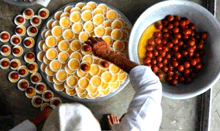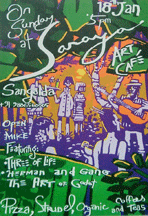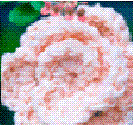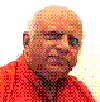 In 2014, it is likely to take place on the 29th of July. It is based on the Islamic Lunar Calendar, and shifts in relation to the Gregorian Calendar.
In 2014, it is likely to take place on the 29th of July. It is based on the Islamic Lunar Calendar, and shifts in relation to the Gregorian Calendar.
Coming with the new moon, the festival marks the end of 'Ramadan' - a month when Muslims fast throughout the day and eat only after sunset, Prayers, feasts and family get- together are the major highlights of the celebrations. It was during this month that the holy Koran was revealed. Eid means recurring happiness or festivity. Eid is celebrated in India with much enthusiasm and fervor and Muslims from all strata of life can be seen in beautiful new clothes, visiting the mosques to attend Salatul Eid (Eid prayers). Greetings of "Eid-Mubarak" or "a blessed Eid" are exchanged.
A very important aspect of Eid is the charity, which all the Muslims are expected to extend to the needy. Earlier, this was in the form of gifts in kind but now cash is given to the needy. The first Eid of the year is known as "Eid Al Fitr". Al Fitr literally means breaking of fast. Thus Eid Al Fitr is celebrated on the first day of Shawaal, the tenth month in the Muslim calendar, to mark the end of a month long fast during the month of Ramadan. As the third "pillar" or religious obligation of Islam, fasting has many special benefits. Among these, the most important is that it is a means of learning self-control. Due to the lack of preoccupation with the satisfaction of bodily appetites during the daylight hours of fasting, a measure of ascendancy is given to one's spiritual nature, which becomes a means of coming closer to Allah. Ramadan is also a time of concentrated worship, reading of the Quran, purifying one's behavior, giving charity and doing virtuous deeds.
The secondary objective of fasting is a way of experiencing hunger and developing compassion for the less fortunate, and learn to be thankful and appreciative for all of God's bounties. Fasting is also advantageous to the health and provides a break in the cycle of rigid habits.
Eid Al Fitr is a day of joy and thanksgiving. On this day, Muslims show their joy for the health, strength and opportunities of life, which Allah has given them to fulfill their obligations of fasting and other good deeds during the month of Ramadan. It is considered unholy to fast on this day. It is also a day of forgetting old grudges and ill feelings towards other fellow men. The second important Eid celebration is called "Eid Al-Adha".
Although only the pilgrims in Makkah can participate in the Hajj fully, all the other Muslims in the world join with them by celebrating Eid Al-Adha, or "Celebration of Sacrifice." On the 10th day of Dhul-Hijjah, the last month of the Islamic calendar, Muslims around the world celebrate this feast of commitment, obedience and self-sacrifice to Allah. They wear their nicest clothing and attend Salatul-Eid (Eid Prayer) in the morning. This is followed by a short sermon, after which everyone socializes. Next, people visit each other's homes and partake in festive meals with special dishes, beverages, and desserts. Children receive gifts and sweets on this happy occasion. In addition, like the pilgrims in Makkah, the Muslims, who can afford to do so, offer domestic animals, usually sheep, as a symbol of Ibrahim's sacrifice. The meat is distributed for consumption to family, friends, and to the poor and needy. Prayers are offered in mosques and Idgahs and elaborate festivities are held.
Eid ul-Fitr is celebrated for three days. Common greetings during this holiday are the Arabic greeting ‘Eid Mubārak ("Blessed Eid") or ‘Eid Sa‘eed ("Happy Eid"). In addition, many countries have their own greetings based on local language and traditions - in Turkey, for example, a typical saying might be Bayramınız kutlu olsun or "May your Bayram ( Eid ) be blessed." Muslims are also encouraged on this day to forgive and forget any differences or past animosities that may have occurred with others during the year.
Typically, Muslims wake up relatively early in the morning - always before sunrise - offer Salatul Fajr (the pre-sunrise prayer), and in keeping with the Sunnah (traditions and actions of the Prophet Muhammad), clean one's teeth with a Miswaak or toothbrush, take a shower (Ghusul) before Fajr prayers, put on new clothes (or the best available), and apply perfume.
It is haraam, or forbidden, to fast on the Day of Eid. That is why it is recommended to have a small breakfast (as a sign of not being on a fast on that day) of sweet dish, preferably the date fruit, before attending the special Eid prayer (salah). It is a Sunnah (Prophetic tradition) that the Sadaqat-ul-fitr, an obligatory charity, is paid to the poor and the needy before performing the ‘Eid prayer by all those adult Muslims who are required to pay Zakat.[9] Muslims recite the following Takbir (incantation) in the low voice while going to the Eid prayer: Allahu Akbar, Allahu Akbar, Allahu Akbar. Laa ilaaha ilal-lahu wal-Allahu Akbar, Allahu Akbar wa-lilla hil hamd.[10] Another Sunnah of Muhammad Muslims are recommended to use two separate routes to and from the prayer grounds.
Eid prayer is performed in congregation in open areas like fields, community centers, etc. or at mosques. No adhan (Call to Prayer) or iqama (call) is to be pronounced for this Eid prayer, and it consists of only two raka'āt (units of prayer) with an additional six Takbirs. The Eid prayer is followed by the khutbah (sermon) and then a supplication (dua) asking for God's forgiveness, mercy, peace and blessings for all living beings across the world. The khutbah also instructs Muslims as to the performance of rituals of Eid, such as the zakat. Listening to the khutbah (sermon) of Eid is a necessary requirement (wajib) i.e. while the khutbah is being delivered; it is haraam (prohibited) to talk, walk about or offer prayer while the sermon is being delivered. After the prayers, Muslims visit their relatives, friends and acquaintances or hold large communal celebrations in homes, community centers or rented halls.
Eid gifts(called eidi's in some cultures) are frequently given to children and immediate relatives; it is also common in some cultures for children to be given small sums of money by adult relatives or friends.
Islamic Tradition
Many Muslims often bring prayer rugs to the Mosque on Eid ul-Fitr.
Eid ul-Fitr marks the end of the fasting month of Ramadan. This has to do with the communal aspects of the fast, which expresses many of the basic values of the Muslim community; i.e., empathy for the poor, charity, worship, steadfastness, patience etc. Fasting is also believed by some scholars to extol fundamental distinctions, lauding the power of the spiritual realm, while acknowledging the subordination of the physical realm. It also teaches a Muslim to stay away from wordly desires and to focus entirely on the Lord and thank him for his blessings. It is a rejuvenation of the religion and it creates a stronger bond between the Muslim and his Lord. After the end of Ramadan, is a big celebration of Eid
Islam is one of the religions which rose in the Middle East, after Judaism and Christianity, with which it has many similarities.
Catholics have a period of Lent, just as Islam has a month of fasting in Ramadan.
Catholics follow Lent, with the culmination on Good Friday, and celebrate the Resurrection of Christ on Easter. In Islam, Eid al Fitr, culminates the Fast of the month of Ramadan. Catholics, have the Feast of Pentecost, 50 days after Easter, commemorating the descent of the Holy Spirit on the Apostles. In Islam, after the period of Eid Al Fitr, the pilgrimage of Hajj, takes place and ends with the feast of Eid Al Adah.
| < Prev | Next > |
|---|
















